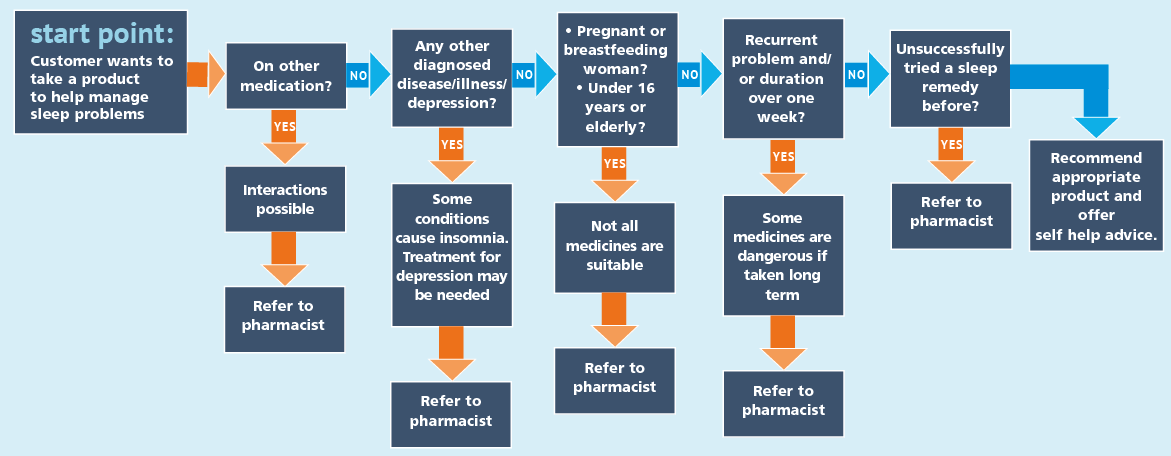10-minute clinic: sleep and insomnia
In Conditions
Follow this topic
Bookmark
Record learning outcomes
This handy 10-minute clinic is designed to act as a quick reference guide that will help you when advising customers suffering from insomnia and sleep problems. The flowchart below will lead you through the decision-making process to help you respond to customer queries

At a glance

When to refer to the pharmacist
- Anyone taking prescribed medication
- Anyone with any diagnosed diseases/conditions
- Anyone with possible depression
- Early morning waking
- Children under 16 years or the elderly
- Pregnant or breastfeeding women
- If symptoms have been present for longer than a week
- Anyone who has suffered from insomnia before
- Anyone who has unsuccessfully tried a sleep remedy before.
Self care tips
- Avoid caffeine and nicotine for at least four to six hours before bedtime
- Avoid alcohol and heavy meals before bedtime
- Regular exercise can help, but shouldn’t be carried out within four hours of bedtime
- Establish a routine pattern of daytime wakefulness and night time sleepiness to train the body to sleep at night, e.g. avoid daytime naps, only go to bed when sleepy
- Ensure the bedroom environment encourages sleep, minimising noise, light and excessive heat at night
- Try having a warm bath or milky drink before bed every night
- If anxiety is the problem, write worries down to help put them to one side until morning
- Try relaxation techniques, such as deep breathing
- Sleep aids should only be used for a few days at a time.
Whenever you talk to any customer, remember WWHAM:
Who is it for?
What are the symptoms?
How long have the symptoms been present?
Action already taken?
Medication?
You don’t have to ask these questions in order, and a customer might give some of this information without you asking.
As long as you get these into the conversation, you should be able to find out enough information to make a recommendation. The golden rule is: if in doubt, refer to the pharmacist. Don’t be embarrassed to ask for their advice as they have a lot of additional information about products and symptoms to hand.
